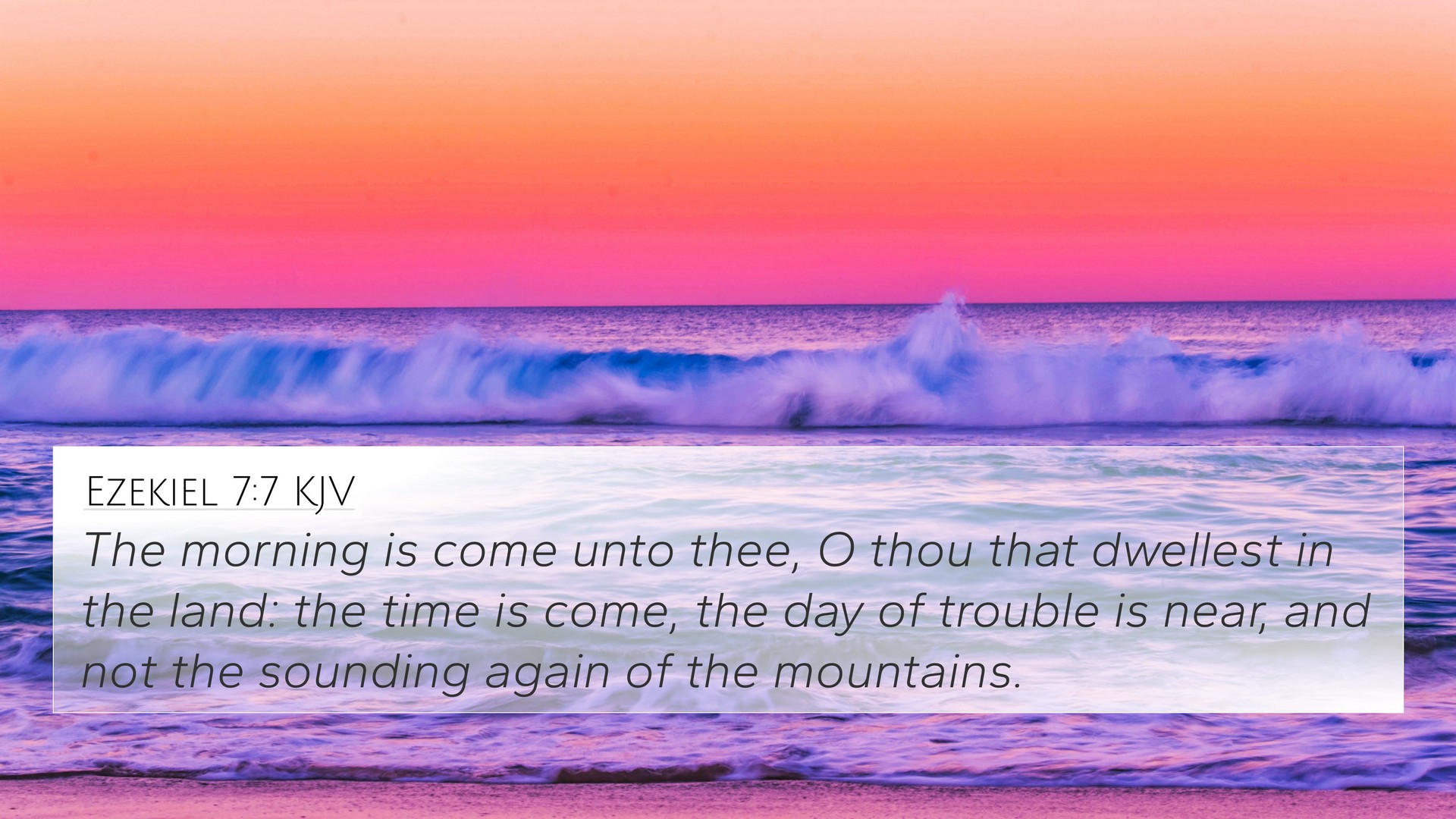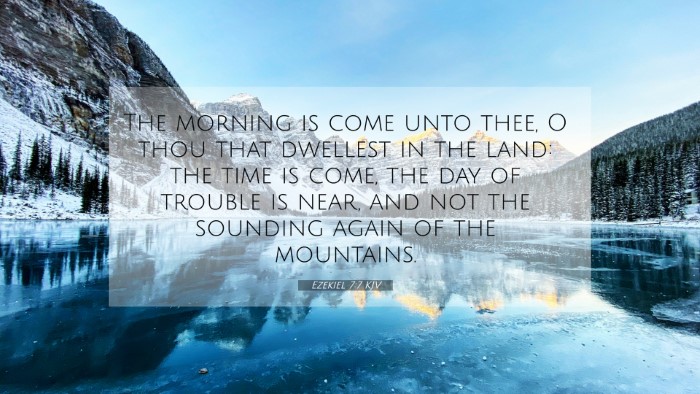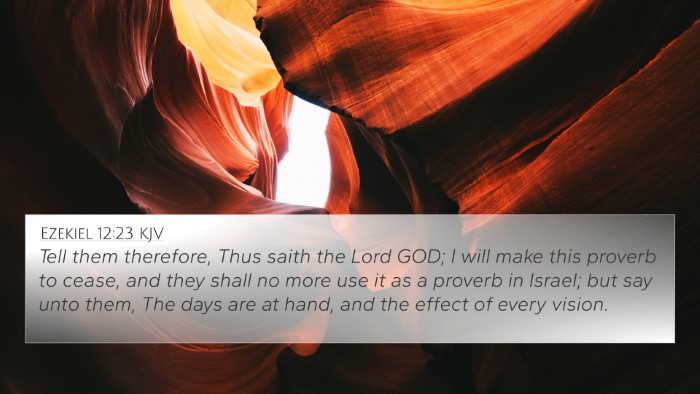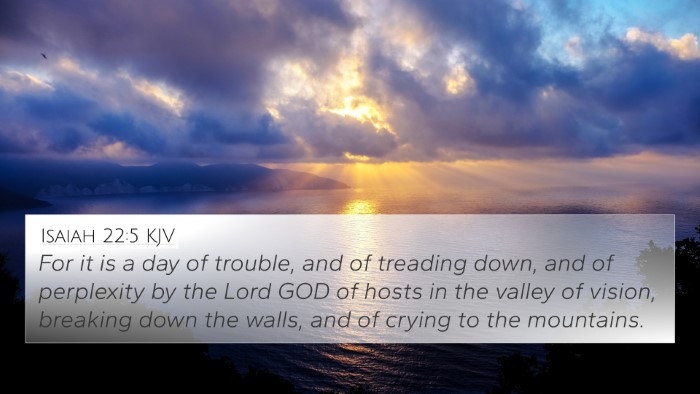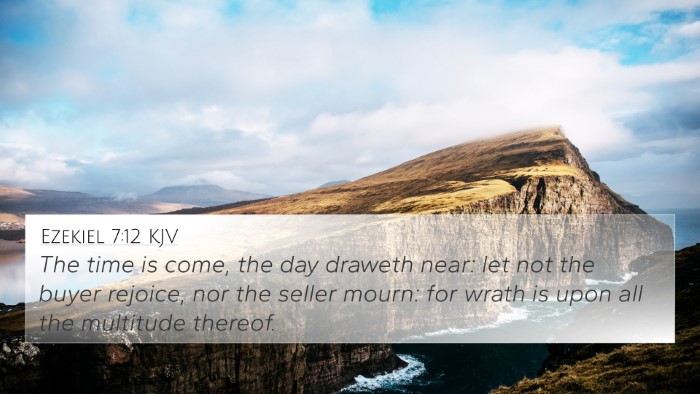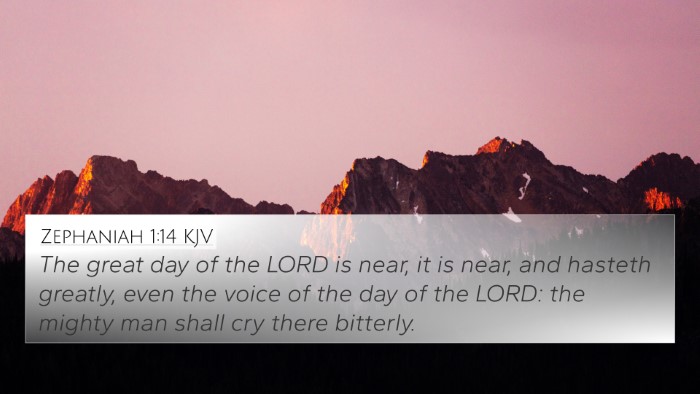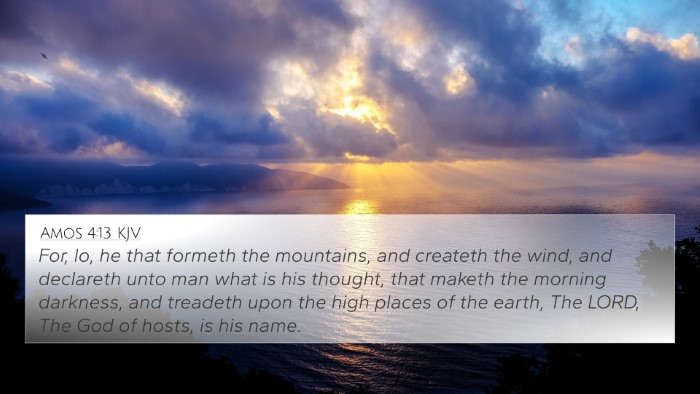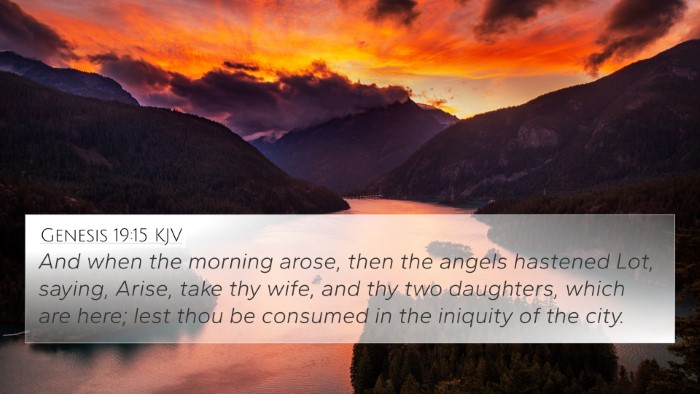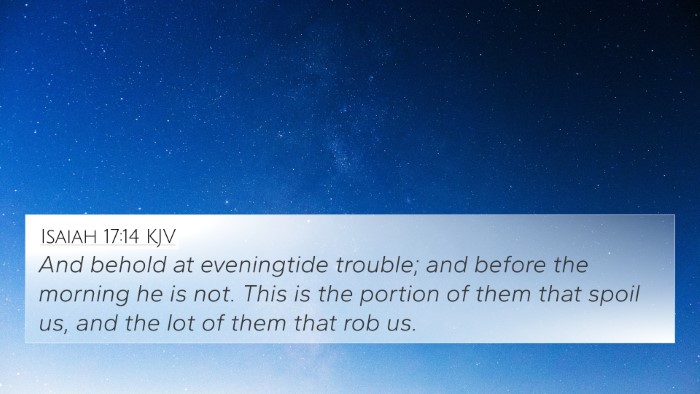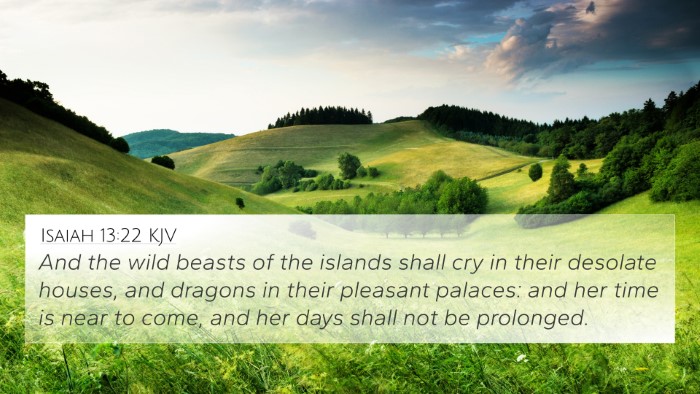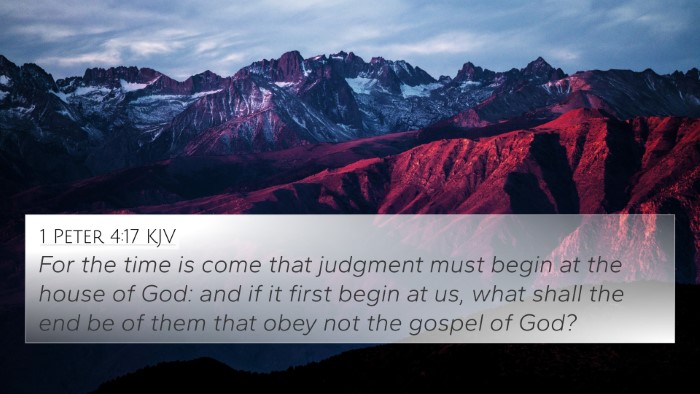Ezekiel 7:7 - Meaning and Interpretation
The verse Ezekiel 7:7 states:
"The morning has come unto thee, O thou that dwellest in the land: the time is come, the day of trouble is near, and not the sounding again of the mountains."
This verse encapsulates a crucial message of impending judgment and disaster for the people of Israel. Below is a combined interpretation based on public domain commentaries, emphasizing the gravity of the situation depicted in Ezekiel's prophecy.
Contextual Background
Ezekiel, a prophet during the Babylonian exile, conveys a message of God's judgment against Jerusalem and its inhabitants. This chapter serves as a stark warning of the destruction that is to come due to the people's sins and disobedience.
Summarized Insights
- Matthew Henry's Commentary:
Henry emphasizes the urgency and severity of the judgment that is approaching. He notes that the "morning" signifies the arrival of a new phase in divine judgment, transitioning from warnings to the execution of those warnings. The mention of "the day of trouble" indicates that calamity is imminent, and the people should prepare for the consequences of their actions.
- Albert Barnes' Notes:
Barnes highlights the metaphorical significance of "morning" and its association with revelation and clarity. The impending doom is not merely an event but represents a divine awakening to the reality of sin's repercussions. He points out that the mention of "not the sounding again of the mountains" suggests a cessation of peace and prosperity, signaling an irreversible change in the community's fate.
- Adam Clarke's Commentary:
Clarke underlines the prophetic nature of Ezekiel's message. He interprets the "morning" as symbolizing the dawn of execution of judgment, where the iniquities of the people come to a head. The phrase "the day of trouble is near" serves as a call to introspection for the Israelites, urging them to recognize the seriousness of their conditions before the judgment arrives.
Thematic Connections with Other Bible Verses
This verse can be cross-referenced with several other scriptures that reinforce its themes of judgment and accountability:
- Lamentations 2:1-5: Reflects on God's anger towards Jerusalem, focusing on His judgment.
- Amos 5:18-20: Warns against desiring the Day of the Lord, equating it with darkness instead of light.
- Micah 3:12: Prophesies the destruction of Zion because of the actions of its inhabitants.
- Isaiah 13:6: Announces the coming of God's judgment against Babylon, parallel in tone to Ezekiel.
- Jeremiah 4:19-20: A personal lamentation of the prophet, capturing the distress of impending destruction.
- 2 Peter 3:10: The certainty of the Day of the Lord, where heavens will pass away, emphasizing the reality of divine judgment.
- Revelation 16:17-19: Discusses the final judgment that mirrors the kind of calamity predicted in Ezekiel.
Understanding the Implications
These cross-referenced verses collectively enhance understanding of Ezekiel 7:7, showing the interconnectedness of biblical themes concerning divine judgment and accountability. The prophets often echo similar warnings throughout scripture, illustrating the consistency of God's message through different times and contexts.
Keywords and Their Relevance
This analysis integrates various keywords related to Bible verse interpretation:
- Bible verse cross-references: This process enhances understanding by linking related themes and messages across scripture.
- Connections between Bible verses: Ezekiel's message connects deeply with the overall narrative of judgment found in the prophetic literature.
- Cross-referencing Biblical texts: Utilizing resources like a bible concordance can aid in identifying similar themes across the text.
- Comparative Bible verse analysis: Examining how different prophets address similar issues can reveal deeper insights into God's nature and His dealings with humanity.
Applications for Bible Study
For those looking to deepen their understanding of biblical themes:
- Tools for Bible cross-referencing: Utilize tools to explore interconnected messages among scriptures.
- Bible cross-reference guide: Leverage guides to uncover thematic connections and enhance your study sessions.
- Bible reference resources: Comprehensive materials can illuminate the significance of various Bible verses.
Conclusion
Ezekiel 7:7 serves as a profound reminder of the seriousness of sin and the unavoidable consequences that follow. By engaging with related scriptures and utilizing cross-referencing techniques, readers can gain a deeper understanding of biblical themes and their implications for today.
